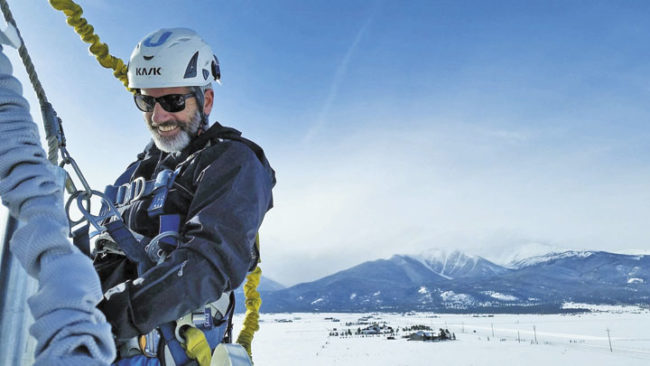By Mike Rosso
It was over a decade into the 21st century and the town of Crestone was struggling to keep up with the modern era. At a time when most of the urban United States, as well as many rural communities were becoming more and more dependent on the internet for work, news, commerce, and entertainment, the small community at the base of the Sangre De Cristo mountains in the San Luis Valley was not getting the needed bandwidth for basic internet service from its sole provider.
Ralph Abrams, then mayor of Crestone, was concerned the lack of workable bandwidth was discouraging newcomers and causing some residents to leave.
“We were getting half a meg at best,” Abrams said.
That’s when local citizens decided to take matters into their own hands. Their biggest challenge was finding the startup capital to take on a project of this magnitude. A grassroots effort was started to raise community funding, as well as help from a Small Business Administration loan arranged through the Collegiate Peaks Bank. Several grants were also helpful in the company’s expansion, including one from the State Broadband Deployment Fund and from Freeport-McMoRan Inc., the owners of the Climax Mine in Leadville.
“We started with 58 local investors, including contributions from our CEO and other staff members. We have since repaid our original investors, though a handful opted to hold onto their stake in the company,” Abrams explained.
[InContentAdTwo]
He used this capital to start Crestone Telecom, employing a tower to send broadband signals to homes and businesses as a wireless internet service provider in Crestone. Its first customer came online in April 2012.
“Our first tower was located just outside the town limits of Crestone, due east of the Baca [subdivision]. We call it the ‘Aspen’ tower,” said Abrams.
The initial success led the company to expand its coverage area to the northern San Luis Valley and eventually into the Upper Arkansas River Valley with the encouragement of the Chaffee County Economic Development Corporation (CCEDC) whose board considered broadband its number one priority, according to its director, Wendell Pryor. “The CCEDC was helpful in facilitating and connecting the dots for the young business,” he said.

